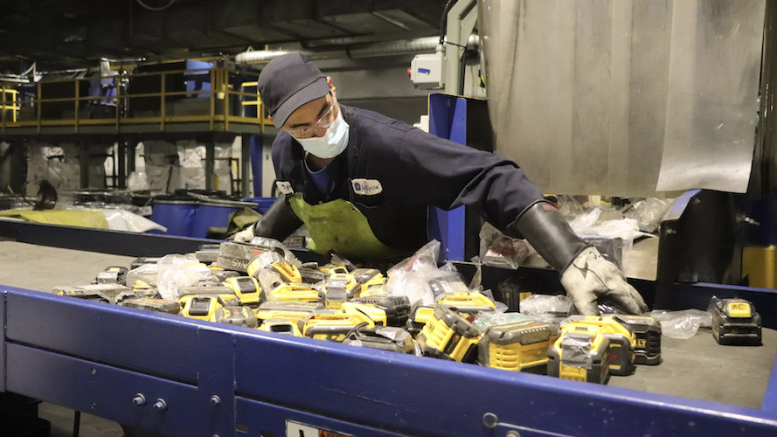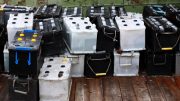Mining and commodities giant Glencore (LSE: GLEN) has joined forces with Canada’s Li-Cycle Holdings (NYSE: LICY) to build a battery recycling plant in Italy, set to become Europe’s largest facility of this kind.
The Swiss company, which has a 10% stake in Li-Cycle, wants to convert an old lead refinery it has in Sardinia into a plant that will help it reuse expensive key raw materials such as cobalt, lithium and nickel.
The new facility, which could be commissioned by late 2026 or early 2027, would have a processing capacity of between 50,000 and 70,000 tonnes a year of pre-treated scrap product, known as black mass.
The plant would increase Glencore’s control over the supply of critical raw materials needed by automakers.
“Establishing a Hub through the re-purposing of our Portovesme site, which could become the first Glencore asset to produce battery-grade lithium, will enable us to truly close the loop for our European OEM and gigafactory customers across all aspects of the supply chain,” the company’s global head of recycling, Kunal Sinha, said in a statement.
The move is one of the many steps the miner has taken this year towards tapping into the recycling sector.
In late January, the firm partnered up with Moroccan mining company Managem to produce cobalt from recycled battery materials at a plant near Marrakech.
A month later, Glencore announced it would expand its Britannia Refined Metals plant in southern England, which has historically been a leading re-user of lead-acid batteries found in combustion-powered cars.
It also became strategic partner of (EV) battery start-up Britishvolt to build a recycling plant of lithium-ion batteries in the UK.
Glencore later inked an agreement with Spanish and Portuguese companies to offer lithium-ion battery recycling services in both countries.
Li-Cycle has a large black mass processing hub in Rochester near New York, which is about half the size of the planned facility in Sardinia.
The company received in February support from the U.S. Department of Energy via a US$375 million loan, which will be used to finish building the Rochester plant, which has an estimated cost of US$485 million.
The total investment needed for the facility in Italy has yet to be determined.
Recycling unit to grow ‘exponentially’
Chief executive officer Gary Nagle has said that recycling contributes US$200 million to US$250 million to the company’s earnings before interest, taxes, depreciation and amortization, which reached US$34.1 billion last year.
He added that the unit’s growth was expected to be “exponential” as global vehicle makers are preparing to launch hundreds of new EV models over the next few years, responding to pressure from regulators who continue to tighten restrictions on greenhouse gas emissions from vehicles.
The European auto industry, in particular, is rushing to meet tighter carbon-dioxide emissions targets that take effect next year or face billions of dollars in fines if they exceed them.
Recycling batteries will also reduce the amount of cobalt or lithium European countries need to import to make EVs.
It is estimated that only 5% of the world’s lithium batteries are currently being recycled, with market analysts at Wood Mackenzie anticipating the sector will not take off before 2030.





Be the first to comment on "Glencore, Canada’s Li-Cycle to build Europe’s largest battery recycling plant"